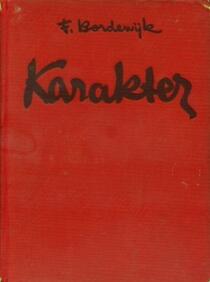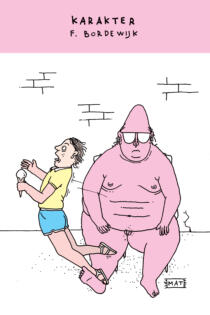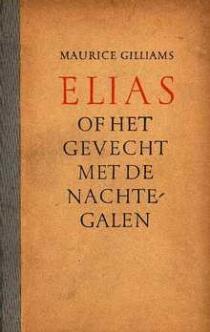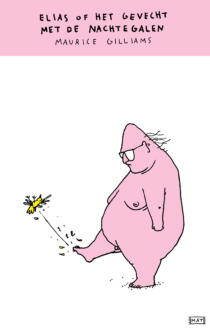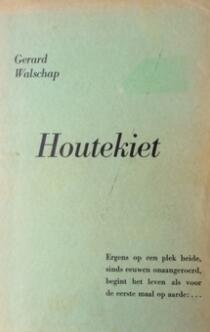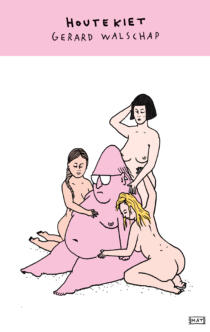Jacoba, a maid whose employer Dreverhaven forced himself on her and made her pregnant, refuses his marriage proposals three times and also refuses to accept a cent from him. And yet a mutual fascination remains… The single mother raises her son with a loving but firm hand, through misery and poverty. She toils and fights for survival and is relieved when he finally leaves home to stand on his own feet. Jacob Willem Katadreuffe speaks of his mother “who had the same blood as he, that they could not tolerate each other”, only in terms of “her” and “she”.
Dreverhaven, however, is the most difficult character of all of them. Not only is he a ruthless bailiff, but he obstructs his son - who is determined to be a lawyer despite only having attended primary school, and who is willing to put in almost inhuman efforts - at every turn. The father allows his son to go bankrupt no less than three times. But it does not work the last time. As Katadreuffe’s goal finally comes into sight, after all the fighting and studying so hard, his personality changes: “(…) gradually, he became more human (…). While he could feel pity, he was also secretly ebullient”.
The cruelty and powerlessness of bailiff Dreverhaven grows parallel to this, but the father can no longer prevent his son from becoming a lawyer. With his diploma and his title in hand, Katadreuffe takes stock and eventually breaks with his father. His mother is dying of tuberculosis; his only friend, Jan Maan, a high-spirited worker with communist sympathies, has become estranged from him and the girl Lorna te George “whose warmth he had spurned” has married someone else to escape poverty: “(…) it was all sorrow”.
The “Novel of Father and Son”, as it is subtitled, starts at a great pace and reads like an adventure story. But it slows down when Katadreuffe starts working at the bottom rung of the ladder at a law firm, and becomes aware of his ambitions. The author, Ferdinand Bordewijk, worked for a few years at a law firm after he had finished his own studies. He introduces memorable characters, often bordering on caricatures, with names to match: Stroomkoning, Rentenstein, De Gankelaar, and also Hamerslag and Hieperboree, Dreverhaven’s cruel henchmen. The characters come to life through a highly visual and elastic use of words.
The author provides a commentary, making humorous, cynical and sometimes chauvinist remarks. For example, Katadreuffe thinks that the typist Van de Born is “with all her youth, very irritatingly emancipated”, and when Miss Kalvelage gives him an assignment, he feels initially “vaguely humiliated”, but that feeling vanishes “because he doesn’t have to follow a girl’s orders. This little creature didn’t have a sex, she certainly wasn’t a girl, more a sort of kobold”. But that image alters later on, and Kalvelage shows herself to be an exceptionally intelligent, humorous and confident woman.
Character is an intriguing journey through the dark psyche of human beings. There is not a single one-dimensional character. The success of motion picture versions of this book shows how timeless and universal the themes are. It deserves its place in the canon of Dutch-language literature.

